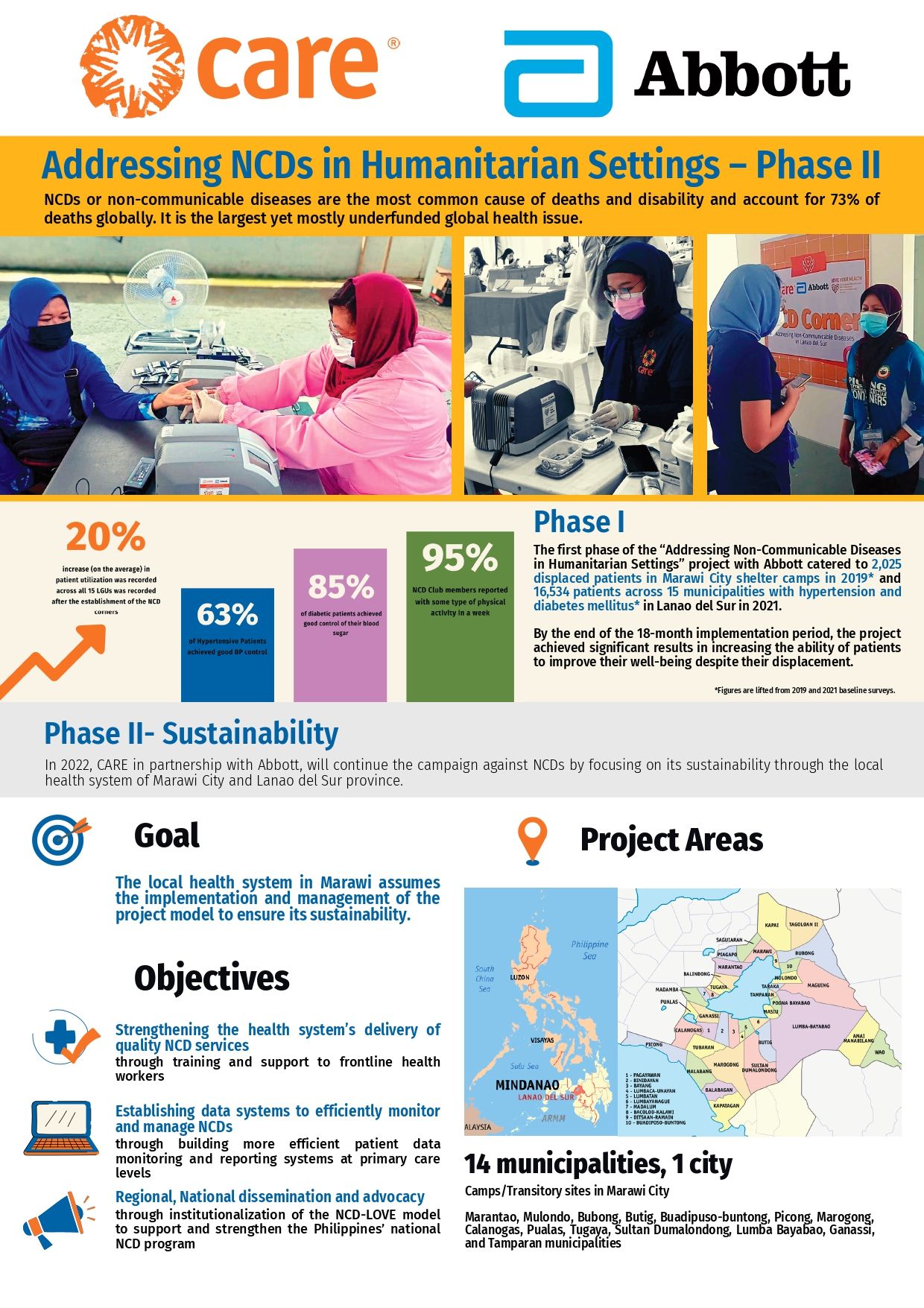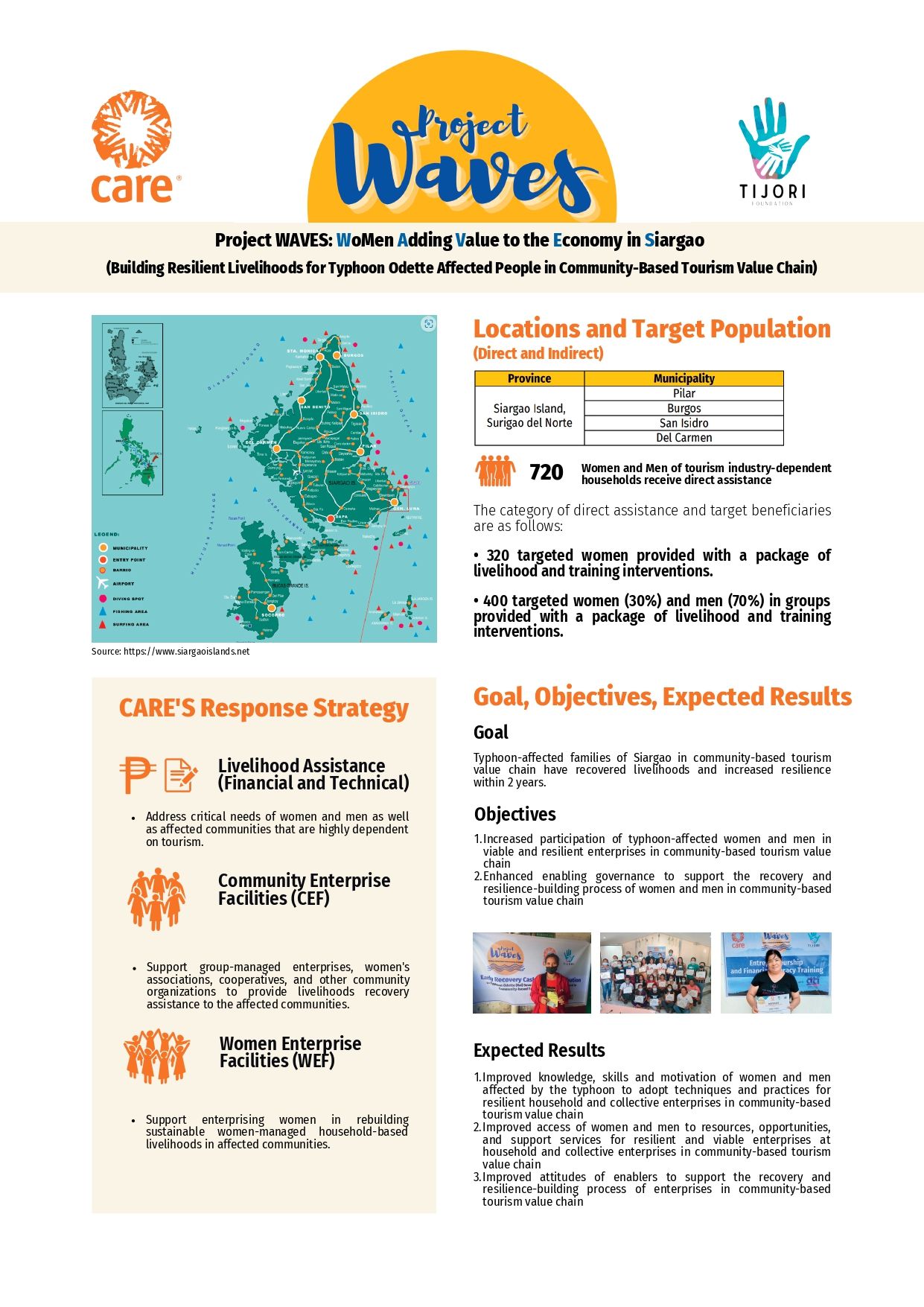The Wave of Women-Led Enterprises after Typhoon Rai: Rosana’s Story
“I was able to expand my business and increased my income through the project’s assistance. I can now provide for the needs of my family, and I won’t have to work elsewhere and away from my children”, shared Rosana, 36, a woman entrepreneur in Del Carmen municipality in Siargao.
She and her husband, Olibert, manage an eatery that sells cooked food, grilled meat, coconut drinks, and various sundry items. Locals and tourists who crave cheap comfort food have been coming and going. The business brings considerable income to support their family of six.
This was far-fetched from their situation more than a year ago when super typhoon Rai, locally known as Odette, ravaged everything they had in just a few hours of destruction. They lost their cooking equipment and ingredients. Their food stall was also destroyed.
They used up their business capital and savings to survive the first few months after the typhoon. To ensure that their children’s needs were taken care of, her husband sold young coconut juice to tourists who were slowly coming back to the island. However, it barely brought money to the household because of the unstable supply of young coconuts affected by the typhoon.
So, Rosana made the difficult choice of leaving her family. She worked as a house helper in another municipality and stayed there for six months. She endured the worry of being away so she could earn money.
“If I didn’t work, I was afraid I couldn’t give my children the support they needed at that time”, she said.
She longed to go back home and restart their business. However, their income couldn’t afford them to put up the needed business capital. When CARE introduced project WAVES (WoMen Adding Value to the Economy in Siargao) to their community, she was selected as one of its participants. The project aims to assist typhoon-affected small entrepreneurs, like her, to recover their livelihood and reintegrate them into the local tourism industry of the island.

She underwent training organized by the project to improve the financial and entrepreneurial capacities and competencies of project participants. She then received financial assistance which she used to buy cooking equipment and set up their shop.
“I learned to record and monitor our income and expenditure and started saving again”, she said. With their business thriving, she added that they had more time spent with their children and didn’t have to worry about not being able to provide for their needs.
Project WAVES is a partnership between CARE and the Tijori Foundation to build resilient livelihoods for typhoon-affected small entrepreneurs in the community-based tourism value chain.















